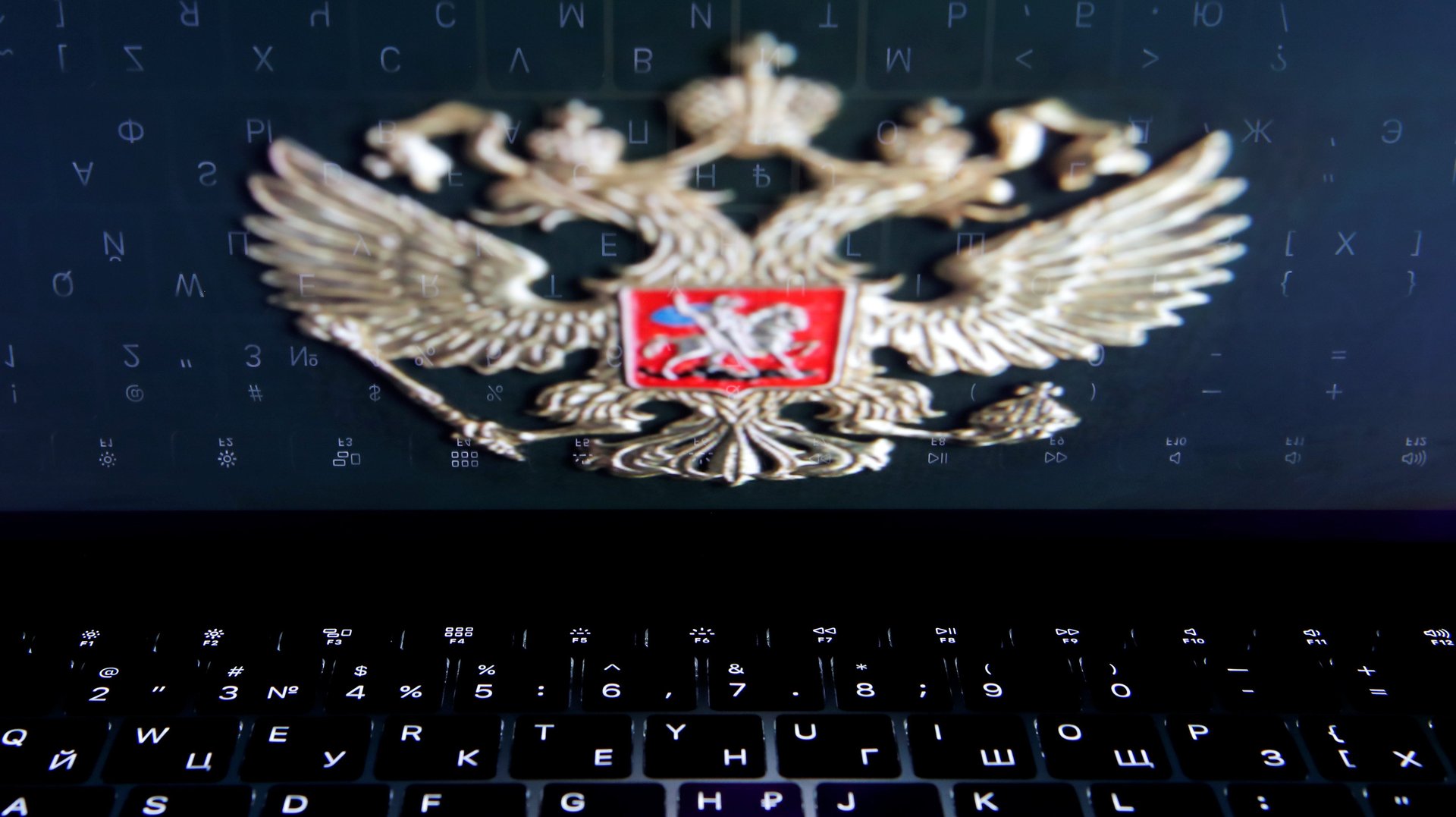The Russian internet is a casualty of war
The Russian internet is a shadow of its former self as the government declares war on the free flow of information at home.


The Russian internet is a shadow of its former self as the government declares war on the free flow of information at home.
On March 4, the Russian state censor Roskomnadzor blocked access to Facebook for “discrimination against Russian media and information resources by Facebook.” An estimated 71 million Russians use the site, about half of the country. The decision was ostensibly in response to Facebook’s own aggressions, the censor said, as days earlier the Meta-owned website started hiding posts by Russian state media.
In the last few days, it also banned Twitter, the walkie-talkie app Zello, and a series of state-funded broadcasters like the BBC; the US’s Voice of America, Radio Liberty, and Radio Free Europe; and Germany’s Deutsche Welle. The broadcasters were taken off the air and their websites were blocked.
Rather than continue to ban websites one by one, its legislature passed a sweeping law on March 4 prohibiting speech it deems to be fake news about its military and the war in Ukraine. The law seeks to “prevent the discrediting of the armed forces of the Russian Federation during their operations.” This didn’t just chill the media environment, it was a complete freeze-out, sending media and tech companies scrambling to leave the country.
Russia escalates its war on ‘fake news’
The Russian internet has never been free from state interference. The Kremlin has routinely pushed state propaganda, imprisoned independent journalists, and routinely fail to investigate attacks on reporters or online activists, but the newest media law is among the most severe: A conviction carries a 15-year prison sentence for people who publish or spread so-called misinformation. That could be construed to mean the platforms that host such speech, even if its user-generated, leaving employees of those companies potentially liable.
Western news media were quick to respond. The BBC suspended its operations in Russia. Bloomberg did the same. ABC and CBS stopped reporting from within Russia, while CNN stopped airing its news programs in Russia. The Washington Post began removing bylines from reporters’ stories out of concern for their safety.
Even if the Russian government didn’t explicitly ban a news organization, the new legal threats made operating independent news outlets nearly impossible: The news website Meduza was blocked by regulators, the newspaper Novaya Gazeta deleted its reporting because of the law, the radio station Echo of Moscow closed down, and the website of Russia’s TV Rain was blocked and its executives fled the country.
The law pressured largest media platforms based overseas to pull out as well. Individual employees of media companies are at risk in Russia under the new law, and it’s also unclear whether companies like Netflix can accept payment by Russian users given that major credit card companies have halted business with Russian banks. On March 6, TikTok and Netflix both announced that they were suspending access to their services. TikTok blocked Russian users from posting new videos or streaming live, though it is allowing them to continue to direct message one another. The app, owned by the Chinese company ByteDance, said it had “no choice” but to halt new content while it reviews the safety implications of the law.
What websites are unavailable in Russia?
Russian citizens, of which only 53% said they trust Putin as of 2021, are now not only cut off from reliable information, they’ve also lost access to essential elements of the online economy. A few of that have stopped selling or transacting in Russia include:
- Airbnb paused operations in Russia and ally Belarus
- Disney halted the release of its films in Russia
- Retailers like Nike have blocked online or in-person sales in Russia
- Dell stopped computer sales
- Apple won’t sell products there and shut down Apple Pay in the country
- Google suspended Google Pay for customers of Russian banks and blocked the Google Play store for Android devices
- Visa, Mastercard, and American Express suspended operations in Russia.
The aggregate effect is a partition between Russia and the internet economy, the effects of which may reverberate for years. As many Western tech companies leave Russia, there’s no guarantee they’ll come back.